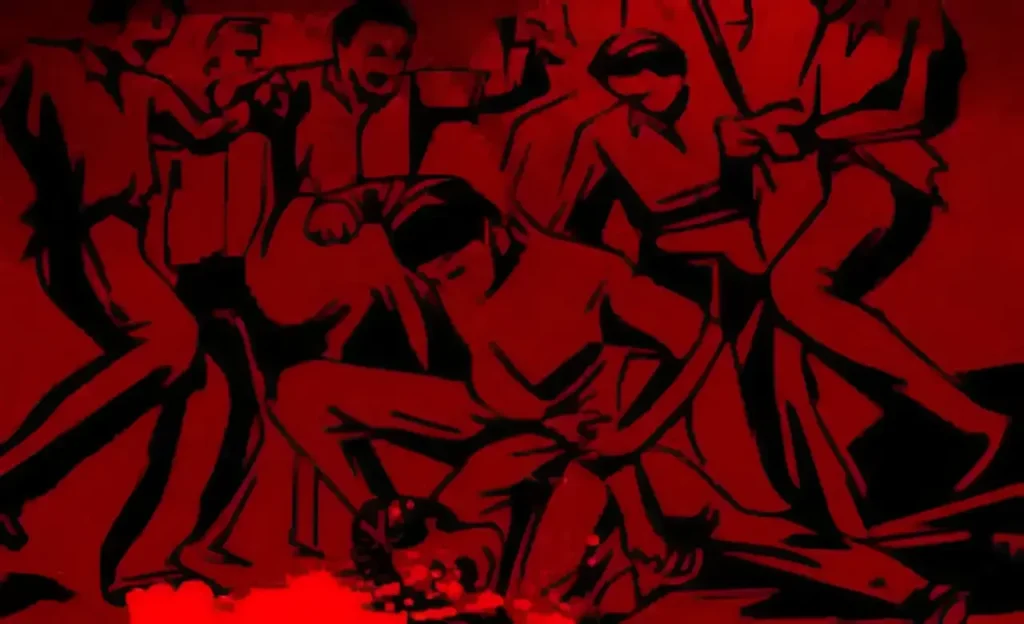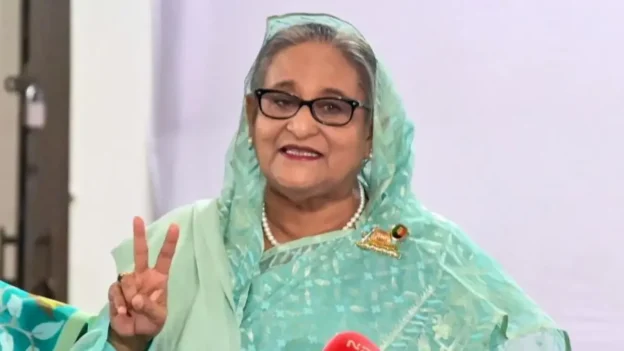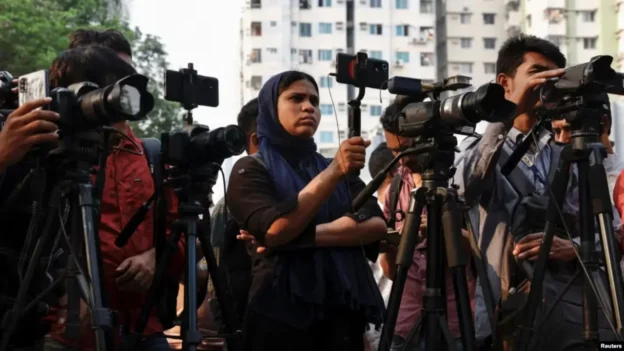The protests that swept through Dhaka last week laid bare the deepening cracks in Bangladesh’s fragile secular fabric. What began as coordinated demonstrations demanding a ban on the International Society for Krishna Consciousness (ISKCON) soon morphed into an alarming display of religious intolerance and political opportunism. Under the interim government of Dr. Muhammad Yunus, the line between state authority and extremist mobilisation appears increasingly blurred.
On October 23, 2025, Islamist groups — some with known radical affiliations — marched through Dhaka’s streets calling for ISKCON’s expulsion from the country. The chants outside university campuses and religious sites accused devotees of acting as “Indian agents,” reigniting old nationalist anxieties that have long been weaponised against religious minorities. Among the protestors were student factions and clerics linked to Hefazat-e-Islam Bangladesh, which later issued a press statement demanding an outright ban on ISKCON. Demonstrations outside the Baitul Mukarram National Mosque and Sher-e-Bangla Agricultural University amplified the sectarian rhetoric, as anger gave way to threats and open incitement.
The New Delhi-based Rights and Risks Analysis Group (RRAG) noted that even more troubling was the appearance of Jashimuddin Rahmani, the former leader of the al-Qaeda–linked Ansarullah Bangla Team (ABT) — a group responsible for a spate of killings of secular bloggers and intellectuals earlier in the decade. Rahmani, who had been convicted for his role in the murder of blogger Rajib Haider, was seen openly participating in the rally at Baitul Mukarram.
“Disturbingly, Rahmani’s re-emergence in extremist rallies underscores the support of Dr. Yunus’ government for extreme Islamist radical elements,” stated Suhas Chakma, Director of the RRAG.
While Dhaka’s streets seethed with religious anger, the Bangladesh Army launched a troubling operation in the Chittagong Hill Tracts. On October 24, 2025, troops sought to forcibly occupy the land belonging to the Arjya Kirti Buddhist temple in Bormachari, Khagrachari district, to set up a temporary military camp. The move came less than a month after soldiers had allegedly shot dead three indigenous youths in Guimara on September 28, during protests over the authorities’ failure to arrest Muslim settlers accused of gang-raping a 14-year-old indigenous girl.
The pattern of violence is now unmistakable. Indigenous and minority women have been targeted with shocking regularity. The gang rape and murder of Chingma Khiyang (29), an indigenous Khiyang woman in Thanchi, Bandarban, on May 5, 2025, and the rape of a Tripuri Hindu schoolgirl in Bhaibonchara, Khagrachhari, in July 2025, are grim reminders of the growing impunity surrounding such crimes. Community leaders allege that instead of pursuing justice, the military and police continue to shield perpetrators aligned with settler interests.
Adding to the atmosphere of persecution, even the country’s universities have become sites of intimidation. On October 21, 2025, the Bangladesh University of Engineering and Technology (BUET) suspended student Sreeshant Roy, accusing him of “hurting religious sentiments” through online posts. A day later, a Dhaka court sent him to jail under the Cyber Security Ordinance, 2025 — a move widely seen as an example of the judiciary’s growing complicity in silencing minority voices.
It was against this grim backdrop that the RRAG issued a sharp condemnation of Dr. Yunus’s interim government. The group accused the administration of “letting loose” radical elements within the Ansarullah Bangla Team, segments of the Bangladesh Army, and the judiciary to intimidate religious minorities and crush dissent. “The re-emergence of extremist figures like Jashimuddin Rahmani in public protests underscores the government’s tacit support for radical forces,” said Chakma. “Religious minorities are being targeted systematically — through street violence, state coercion, and the misuse of law.”
Analysts warn that Bangladesh now stands at a dangerous crossroads. Once hailed as a moderate Muslim democracy with a secular constitutional ethos, the country is drifting toward a perilous fusion of populism and religious nationalism. The Yunus administration’s silence amid such orchestrated hate campaigns has only deepened suspicions of political expediency. As the rhetoric of faith overtakes the rule of law, what remains of Bangladesh’s pluralistic promise appears increasingly under siege.

